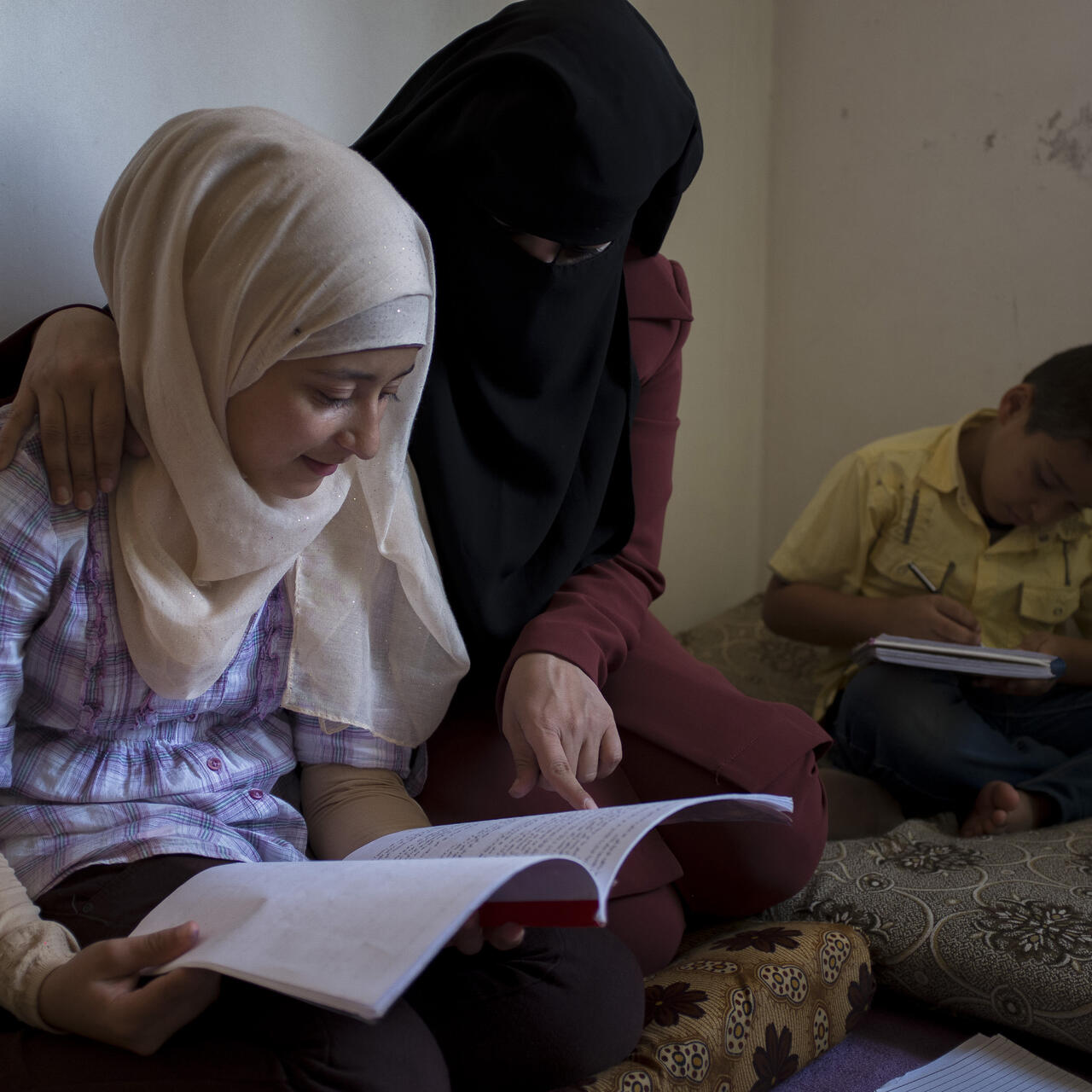
Counselling—and Zumba classes—help three generations of Syrian women find hope
Here's a look at how an International Rescue Committee women's centre in Jordan helped Samaher, her daughter and mother find comfort and hope.

Here's a look at how an International Rescue Committee women's centre in Jordan helped Samaher, her daughter and mother find comfort and hope.
Tanks, bombings and airstrikes had become the new reality for the residents of Damascus three years into Syria's civil war. Samaher,* a mother of three, was fearful of losing her children. Then she received word her brother had been arrested and knew she had to escape.
The journey was difficult, requiring the family to slip through barbed wire and walk for hours on rugged roads. By the time they reached neighbouring Jordan, they were traumatised and unsure about where to go next. Samaher had had no news of her brother. “I was in a very bad psychological state,” she says, "and that influenced my children’s psychological state."
Samaher eventually found refuge in the northern city of Irbid, along with thousands of other displaced and distraught Syrians who were having a hard time coping. “When you’re psychologically stressed, you start feeling lost and confused," she recalls. "You'd want anyone to get you back on track ... because you’re no longer able to think. I just wanted to talk to someone I felt comfortable with.”
Her new neighbours, who empathised with her plight, had advice: they referred her to one of three women’s centres run by the International Rescue Committee in Jordan.
The centres provide women affected by the Syria crisis — now entering its sixth year — with confidential counselling, health care and other support, as well as a safe place to spend time with other women who are faced with the same challenges. To date, over 9,000 women and girls in northern Jordan have benefited from the centres’ services.
Samaher was introduced to Nawal, a psychologist at the Irbid center, and began individual counselling sessions with her that lasted for three months.
“Samaher was devastated,” says Nawal. “She still tells me that when she first came to me she was completely broken. She had suffered a lot, but thankfully we were able to help her.” The centre also provided Samaher with cash assistance to help support her family.
Having benefited so much from Nawal’s counselling, Samaher decided to enroll her 13-year-old daughter, Amwaj, in a course the centre offered to help adolescent girls cope with their lives as refugees and enhance their communication skills.
Amwaj says the course taught her how to trust her instincts and make new friends. "The first thing we learned was self-confidence,” she explains. “We learned how to trust ourselves, and not let anyone take advantage of us in any way."
She also enrolled in the centre’s Zumba fitness class—along with her grandmother Amal, who had also escaped from Damascus.
“I used to always go to the gym back in Syria; I like sports,” says Amal. "But the gyms in Jordan are very expensive. When I found out that the IRC centre offers Zumba classes, I was very motivated to join for me, for my health.”
“These three generations of ladies are great,” says Nawal, who continues to coach them through new challenges, helping them to find stability in the new city they now call home.
“We’ve been through a lot of difficulties and it’s still not easy, but I’m trying not to lose hope and to keep moving forward,” Samaher says. “Nawal and the IRC gave me a good foundation.”
The IRC’s health work in Jordan is supported by the government of the United Kingdom and other generous donors.